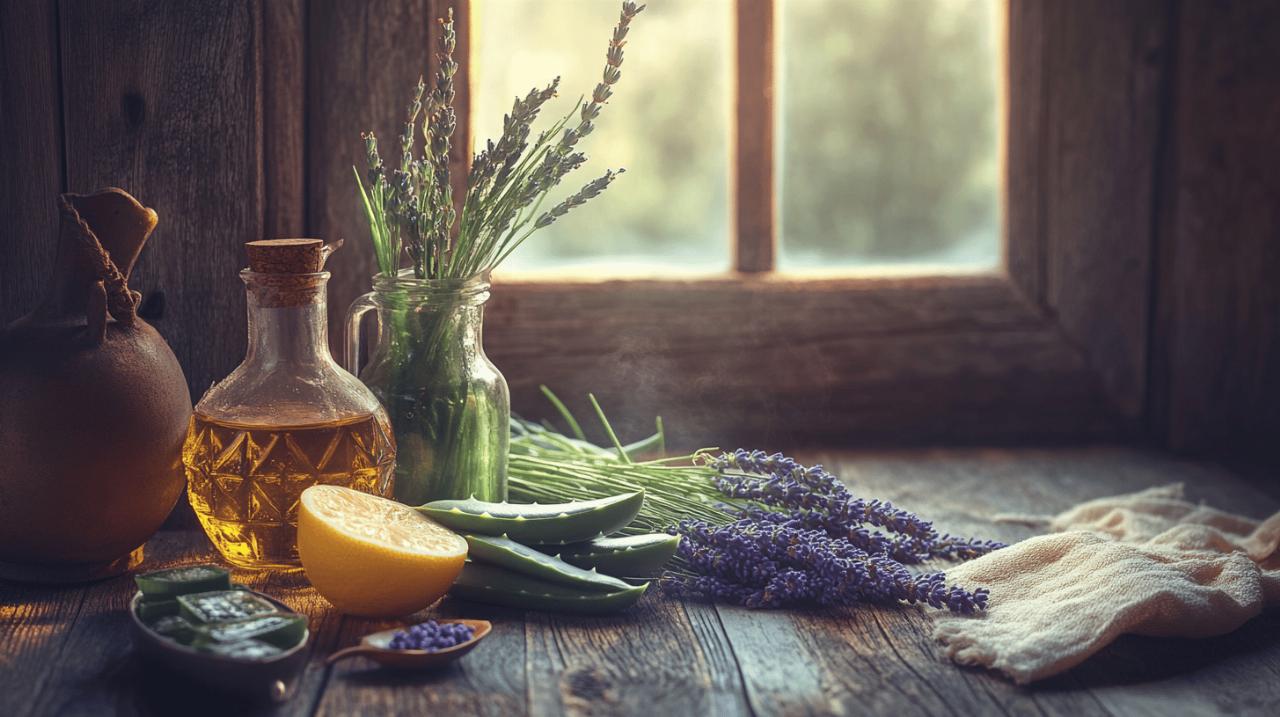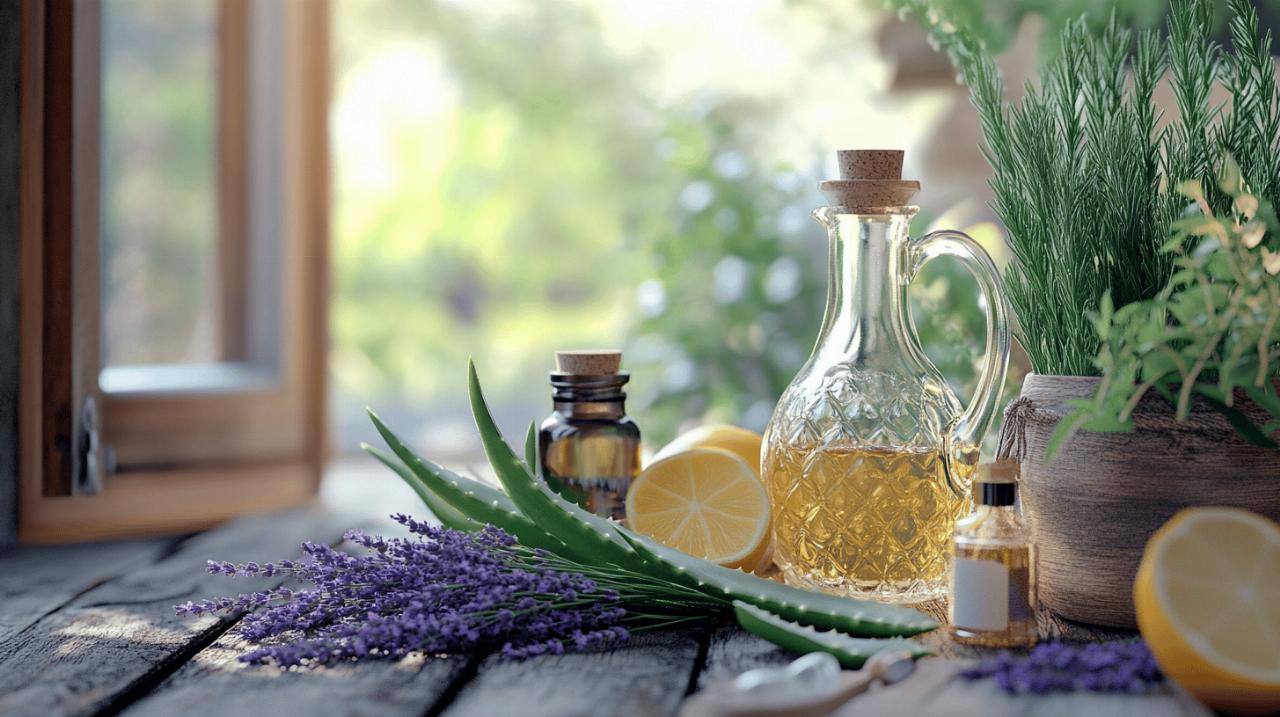Intimate dryness can feel like an unwelcome guest in your life, affecting comfort and confidence in ways that are rarely discussed openly. Yet this concern is far from unusual, and throughout history, women have turned to remedies passed down through generations to ease the irritation and discomfort it brings. These time-honoured approaches often draw from natural ingredients found in the kitchen or garden, offering gentle support when the body's own moisture levels falter. While modern medicine has brought us a wealth of treatments, there remains something deeply reassuring about these traditional methods, rooted in simplicity and respect for the body's natural rhythms.
Understanding intimate dryness: causes and common triggers
When the delicate mucous membranes of the vulvovaginal area lack sufficient moisture, discomfort can manifest as itching, burning, and a feeling of tightness or soreness. This condition, known as vaginal dryness, affects many women at various stages of life. Understanding why it happens is the first step toward finding relief. In many cases, it results from a reduction in the body's natural lubrication, which is influenced by several interconnected factors.
The Role of Menopause and Hormonal Changes in Vaginal Dryness
One of the most significant contributors to intimate dryness is the fluctuation of oestrogen levels within the body. This hormone plays a vital role in maintaining the thickness and elasticity of vaginal tissues, as well as promoting the production of natural lubrication. During menopause, oestrogen levels decline markedly, leading to thinning of the vaginal walls and a reduction in moisture. This change can transform what was once a comfortable experience into one marked by irritation and pain during sexual activity.
It is not only menopause that triggers these hormonal shifts. Pregnancy and breastfeeding also alter oestrogen levels, sometimes leaving new mothers grappling with unexpected dryness. Similarly, cancer treatments such as chemotherapy and hormone therapy can interfere with the body's hormonal balance, as can radiotherapy directed at the pelvic area. Women who have undergone the removal of ovaries or the uterus may find themselves facing similar challenges, as these procedures directly affect hormone production. Even certain medications, including some formulations of the contraceptive pill, sedatives, and specific antibiotics, have been noted to influence vaginal moisture levels.
Lifestyle Factors and Medical Conditions That Contribute to Discomfort
Beyond hormonal influences, everyday habits and underlying health conditions can also play a role in vulvovaginal health. Stress and anxiety, for instance, can affect the body in subtle yet profound ways, sometimes manifesting as reduced lubrication. Smoking has been linked to poorer circulation and diminished oestrogen levels, which in turn can exacerbate dryness. Staying hydrated by drinking six to eight glasses of water daily is a simple yet often overlooked measure that supports the health of mucous membranes throughout the body, including those in the intimate area.
Certain immune disorders and autoimmune conditions can also impact the delicate balance of moisture and pH in the vaginal environment. The use of harsh soaps, perfumed products, or intimate washes can disrupt the natural flora and pH balance, leaving the area more vulnerable to irritation and dryness. It is worth noting that washing the vulva once a day with water or a gentle, unperfumed cleanser is generally sufficient to maintain cleanliness without compromising the natural protective barriers.
Natural Oils and Plant-Based Solutions for Intimate Moisture
For generations, women have looked to the natural world for remedies that soothe and restore. Oils and plant extracts have long been valued for their moisturising and calming properties, offering an alternative to synthetic products. These substances, when used with care and understanding, can provide gentle relief from the discomfort of vaginal dryness.
Coconut Oil and Aloe Vera: Soothing Remedies for Vaginal Health
Coconut oil has earned a reputation as a versatile remedy, celebrated for its ability to moisturise and protect the skin. When applied externally to the vulva, it can offer temporary relief from itching and dryness, thanks to its emollient qualities. However, it is important to remember that coconut oil is not sterile and should never be used as a lubricant during intercourse if condoms are involved, as it can damage latex and compromise protection. Some women also incorporate cannabidiol oil into their intimate care routine, though evidence for its effectiveness remains largely anecdotal.
Aloe vera, a plant long associated with healing and soothing irritated skin, is another option that has found its way into traditional remedies for intimate discomfort. Its cooling gel can be applied externally to ease soreness, though it is essential to ensure that any product used is pure and free from added fragrances or chemicals. While these remedies are gentle, they have not been extensively studied in the context of vaginal dryness, so results may vary from person to person.
Essential Oils and Their Gentle Application for Intimate Care
Essential oils, extracted from aromatic plants, have been used for centuries in various healing traditions. Oils such as chamomile and calendula are believed to possess anti-inflammatory properties, which might offer comfort to irritated tissues. However, it is crucial to approach these substances with caution. Undiluted essential oils should never be applied directly to the vulva or vagina, as they can cause burning and disrupt the natural pH balance. If you wish to experiment with these oils, they should always be diluted in a carrier oil and tested on a small patch of skin first.
Tea tree oil and turmeric, while popular in some home remedy circles, have not been scientifically proven to alleviate vaginal dryness. Moreover, the misuse of such potent substances can lead to irritation and infection. It is always wise to consult a healthcare professional before introducing any new product to your intimate care routine, particularly if you are dealing with ongoing discomfort.
Traditional kitchen ingredients for vaginal comfort
The kitchen has long been a source of remedies for various ailments, and intimate dryness is no exception. Simple, everyday ingredients can sometimes offer relief, though it is important to use them correctly and understand their limitations.
Natural yoghurt: probiotics for balancing intimate flora
Natural yoghurt, particularly varieties containing live cultures, is often mentioned as a remedy for maintaining vaginal health. The probiotics present in yoghurt can help support the balance of beneficial bacteria in the vaginal flora, which plays a key role in preventing infections and maintaining a healthy pH balance. Some women apply plain, unsweetened yoghurt externally to soothe irritation, though this practice should be approached with care and is best discussed with a healthcare provider first. Consuming yoghurt regularly as part of a balanced diet may also contribute to overall pelvic health.
Cider Vinegar and Baking Soda Sitz Baths for Relief
Sitz baths, a practice involving sitting in a shallow basin of warm water, have been used traditionally to ease discomfort in the pelvic region. Some people add a small amount of cider vinegar to the water, believing it helps restore the natural pH of the vaginal area. However, this approach is not without risk, as vinegar can be irritating if used in excess and may disrupt the delicate balance of the vaginal environment. Similarly, baking soda is sometimes suggested as an additive to sitz baths to relieve itching, but again, caution is advised. The safest option is to use plain warm water and to limit the duration of the bath to avoid over-drying the skin.
Phytoestrogens, plant compounds that mimic the action of oestrogen in the body, are found in foods such as soy products, flaxseeds, dried apricots, dates, broccoli, and tofu. Incorporating these into your diet may offer some support for hormonal balance, though they are not a substitute for medical treatment when oestrogen levels are significantly depleted. Flaxseeds in particular are rich in omega-3 fatty acids, which are beneficial for overall health and may contribute to the maintenance of healthy mucous membranes.
Safe Practices and When to Seek Professional Guidance
While traditional remedies can provide comfort, it is essential to approach them with an understanding of their limitations and the importance of proper application. The vaginal area is sensitive and requires care that respects its natural defences.
Proper application methods to maintain vaginal well-being
When using any natural remedy, cleanliness and caution are paramount. Always wash your hands thoroughly before applying any substance to the vulva. Avoid inserting unproven remedies into the vagina, as this can introduce harmful bacteria or disrupt the pH balance. Homemade vaginal douches, for instance, are strongly discouraged by healthcare professionals, as they can wash away beneficial bacteria and increase the risk of infections.
Yoni eggs, sometimes promoted for pelvic floor health, have been the subject of controversy and are not recommended by medical experts. These objects can harbour bacteria, cause infections, and may even contain heavy metals. Similarly, washing the genital area with lemon juice or any acidic substance is harmful, as it can damage the delicate tissues and disturb the natural flora. Water or a gentle, unperfumed cleanser is all that is needed for daily hygiene.
Choosing cotton underwear is a simple yet effective way to support vaginal health. Cotton allows the skin to breathe and reduces moisture buildup, which can create an environment conducive to infections. Avoiding tight clothing and synthetic fabrics also helps maintain comfort.
Recognising when home remedies require medical consultation
There are times when intimate dryness signals a need for professional medical advice. If dryness is accompanied by persistent itching, burning, unusual discharge, or pain during sexual activity, it is important to consult a gynaecologist or healthcare provider. These symptoms could indicate an underlying condition such as a vaginal infection, lichen sclerosus, or another gynaecological issue that requires specific treatment.
Hormone replacement therapy and local oestrogen therapies, such as vaginal rings, creams, or tablets, are proven treatments for dryness linked to low oestrogen levels. Water-based lubricants and vaginal moisturisers offer immediate relief and are widely recommended for use during sexual activity. These products are designed to be safe and effective, and they do not interfere with the body's natural processes.
Engaging in regular sexual activity, with or without a partner, can also help maintain vaginal health. The body responds to arousal by increasing blood flow and natural lubrication, which keeps tissues healthy and elastic. Taking time for foreplay and ensuring adequate arousal before intercourse can make a significant difference in comfort levels.
Stopping smoking, managing stress, and maintaining a nutritious diet rich in omega-3 fatty acids, vitamins, and minerals all contribute to women's wellness and pelvic health. Drinking plenty of water and avoiding processed foods support the hydration of mucous membranes throughout the body. Herbs such as calendula, chamomile, Shatavari root, Chinese asparagus, liquorice root, and marshmallow root have been used in traditional medicine, though their effectiveness for vaginal dryness has not been conclusively proven by scientific research.
Ultimately, the best approach to managing intimate dryness combines the wisdom of traditional remedies with the guidance of modern healthcare. Whether you are navigating menopausal symptoms, recovering from cancer treatment, or experiencing dryness related to breastfeeding or pregnancy, there are safe and effective options available. Always check with a healthcare professional before trying new remedies, particularly if you have existing health conditions or are taking medication. With the right support and information, it is entirely possible to reclaim comfort and confidence in your intimate health.

